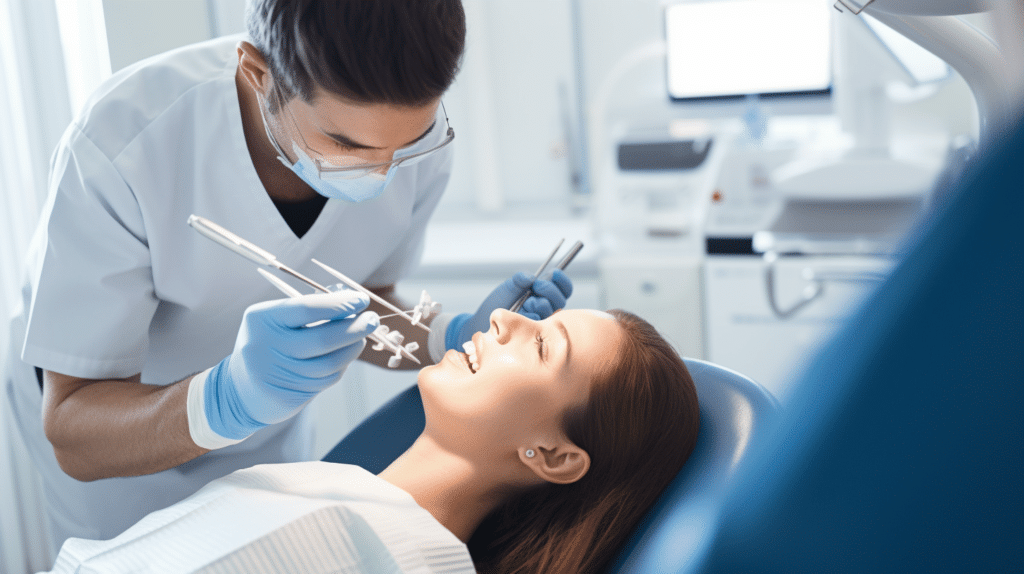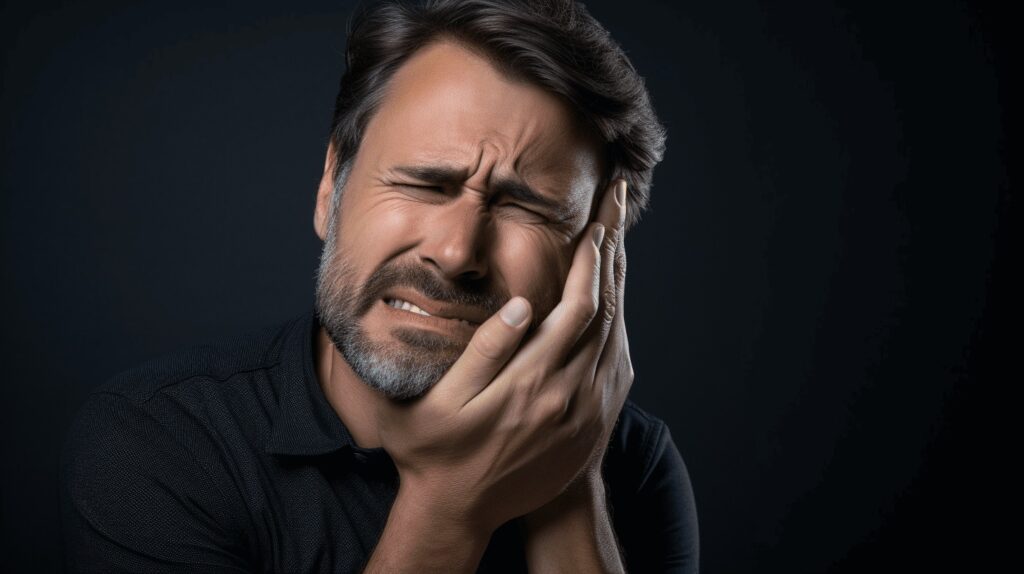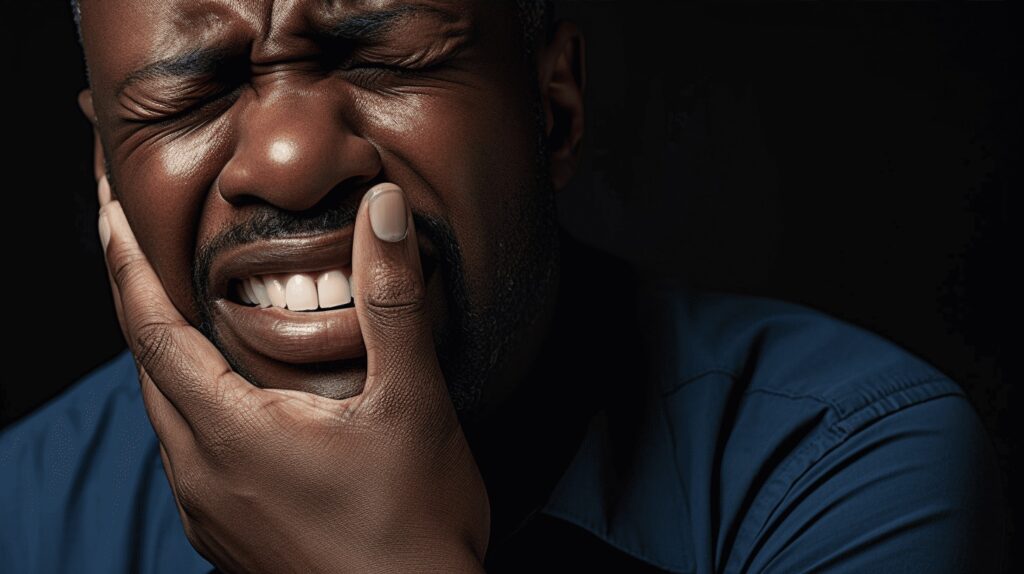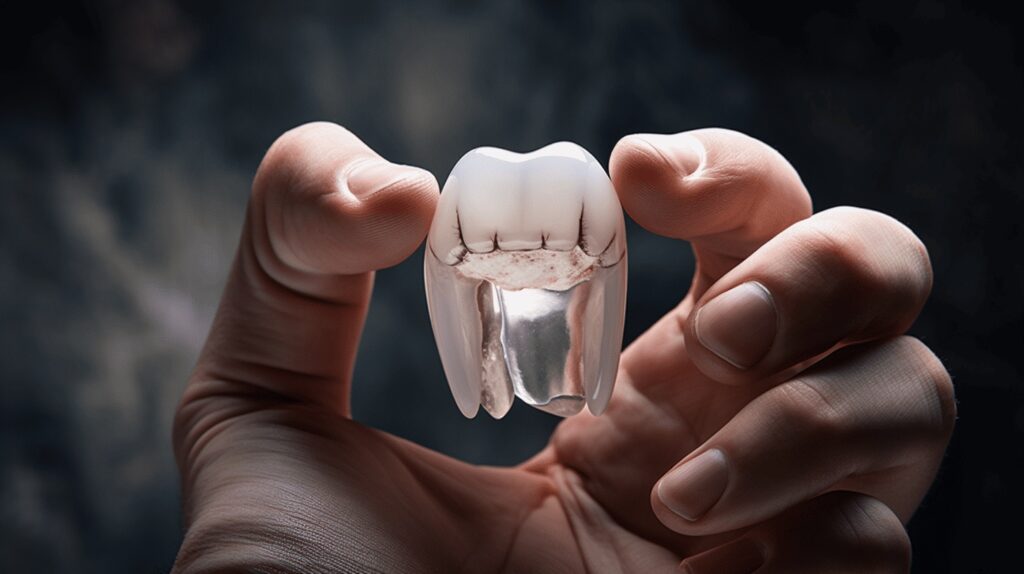Welcome to our enlightening journey into the world of dental health! From toothaches to periodontitis, your smile might face a myriad of obstacles. But here’s the positive note – none of them are unbeatable Dental Emergencies.
As we shine a spotlight on dental emergencies and solutions, you’ll discover strategies to tackle those sudden toothaches, methods to manage long-term dental problems, and the secrets behind maintaining a radiant smile. So, buckle up and prepare to smile with newfound confidence at the knowledge and insights we are about to unfold!
Whether you’re striving for stellar dental health or solving a current dental plight, we’re here to guide you every step of the way. 😄
Table of Contents
Understanding Dental Emergencies
Have you ever bitten into a hard piece of candy, only to feel an unexpected sharp pain? Maybe you’ve even had a slight accident where a tooth got chipped or knocked out. These are just some of the scenarios that are usually categorized as dental emergencies. But what exactly constitutes a dental emergency? And how can you tell if you need emergency dental care?
What Defines a Dental Emergency
A dental emergency is a broad term used to describe issues associated with the teeth and surrounding tissues that can’t wait for a regular dental visit. Dental emergencies, like any medical emergencies, require immediate attention because they can lead to severe pain, infections, and sometimes, even loss of teeth.
Here are a few signs to look out for that could indicate a dental emergency:
- Bleeding that doesn’t stop
- Severe pain
- Loose or knocked-out teeth
- Swelling in your mouth or face
- Bulges or knots on your gums
Since every person’s experience and pain tolerance is different, what might be an emergency for one person may not be for another. It’s crucial to listen to your body and seek immediate care if you believe your situation is severe.
Common Dental Emergencies
Now, let’s delve into some common dental emergencies that people dread. Remember, time is of the essence in these situations and quick actions can prevent further complications.
- Toothaches – Yes, the classic toothache! It may seem common, but some toothaches can be so severe they qualify as dental emergencies. Make sure to rinse your mouth out with warm water and floss to remove any stuck food.
- Chipped or Broken Teeth – When a tooth is damaged, it can lead to more problems down the road if not treated immediately. Try to save any pieces that break off as your dentist may be able to reattach them.
- Knocked-Out Tooth – If a tooth is completely knocked out, it’s vital to get to a dentist as soon as possible. In the meantime, try to put the tooth back in its socket and hold it there until help arrives.
- Lost Filling or Crown – These can be serious because they often expose sensitive areas of the tooth that are vulnerable to damage.
Remember, dental emergencies can be stressful and scary, but your dentist is there to help. Don’t hesitate to reach out if you’re experiencing pain or discomfort – your smile and health depend on it!
Immediate Actions to Take in Case of A Dental Emergency
Emergencies come uninvited; they often leave us in a panic. A dental emergency is no different. The key to dealing with one is knowing what to do when it strikes. You may not have time to visit the dentist immediately, or it may occur at an inopportune time. Don’t worry, we have got your back with some simple immediate actions to take during a dental emergency.
During a Toothache – Dental Emergencies
First things first, if you find yourself clutching your cheek in pain, know that it’s okay👌.
- Rinse your mouth with warm water to cleanse the area.
- Use dental floss to remove any lodged food.
- If the pain persists, apply a cold pack to the outside of your cheek.
Remember, don’t apply aspirin or other painkillers directly to your gums- it could burn your gum tissue.
During a Broken Tooth
A cracked or broken tooth can be a serious matter. Clear steps can help mitigate damage before professional help is available.
- Rinse your mouth with warm water: It will clean the area.
- Apply a cold pack: It will keep the swelling down.
- Cover the part of the tooth in your mouth with a temporary dental cement if you can get to the drugstore.
Hold on, be careful not to swallow the broken piece.
During a Knocked-Out Tooth
Oh no, your tooth came out! There’s no need to panic, though 😌. We got immediate steps for you.
- Pick up the tooth by the crown, not the root: You don’t want to cause any extra damage.
- Rinse off the tooth: But don’t scrub it.
- Try placing the tooth back in the socket: If it doesn’t work, put your tooth in a cup of milk.
- Get to your emergency dentist ASAP: Make sure to bring your preserved tooth.
During Oral Swelling
Swelling is a response to an infection or an injury.
- Rinse your mouth with salt water: It acts as a natural disinfectant.
- Use a cold compress: Apply it outside the swelling area.
- Take Over-The-Counter medication: Non-prescription medicines like ibuprofen can ease the pain and reduce swelling.
Remember, seeing a dentist at the earliest is essential. However, these quick remedies can help manage the situation till then. Be calm, you got this!
When to Seek Immediate Dental Care
Dental health is something we often tend to overlook, and that’s until we face discomfort or unbearable pain. But it’s crucial to identify early signs and symptoms that your teeth might be trying to convey you, warranting immediate attention. Here, we’ll shed some light on those telltale signals and critical situations when you should seek immediate dental care. 👨⚕️🦷
You know what they say, “Prevention is better than cure,” and it applies nowhere better than dentistry. Prompt spotting of issues and their timely treatment can save you from excruciating pain and significant expenses down the line.
- Intense Tooth Pain: A toothache is typically the first signal our body sends indicating something is not right dental-wise. An ongoing severe toothache requires your immediate attention. It could signal various things including dental cavities, gum disease, an abscessed tooth, or a damaged filling, to name a few.
- Bleeding Gums or Mouth: Though occasional bleeding might not necessarily mean an emergency, continuous bleeding could point towards severe gum diseases or other dental disorders. Plus, excess bleeding makes eating and talking difficult, and you surely don’t want that, do you?
- Knocked-out or Broken Tooth: Accidents tend to leave us shaken, physically and mentally. A knocked-out or broken tooth due to an accident qualifies as a dental emergency. Not addressing this promptly can lead to the loss of the tooth permanently.
- Loose or Missing Fillings: Dental fillings are meant to last for years. But sometimes, they can get loose or fall off. If not fixed immediately, they can expose your tooth to infections and decay.
- Swelling in the Mouth or Jaw: This could be the result of a dental infection, salivary gland infection, or a cyst. Serious swelling could interfere with your breathing or swallowing, making it a genuine emergency.
Dental Emergencies
Remember, the rule of thumb is that if it hurts, it’s an emergency. Dental emergencies are nothing to be taken lightly. They can lead to serious consequences if ignored, affecting your overall physical well-being. So never disregard these signs, and visit your dental healthcare practitioner immediately for suitable treatment options.
For those who might have just maybe noticed something a little off with their dental health and currently thinking, “Do I need to see a dentist right now?”, we urge you to prioritize your health. Being cautious and proactive about our oral health care can save us from potential troubles later. So, don’t wait for the sunrise; know when to seek immediate dental care. 🌆🦷
Dealing with Long-Term Dental Problems
Gearing up for that picture-perfect smile but long-term dental problems have been causing you distress? 😖 You’re not alone. Most people, at some point in their lives, experience dental issues that are persistent and demand distinguished attention. We’re here to help, talking you through some of the most common lingering dental problems, including periodontitis, tooth decay, and missing teeth. Rest assured, with the right care, these conditions can be managed effectively. So put on that brave smile 😄 and let’s dive right in!
Understanding Periodontitis
Often asked, “why do my gums bleed when I brush?” The answer, quite commonly, is periodontitis. It’s a grisly term for a gum infection that harms soft tissues and damages the bone which supports your teeth. It is pretty insidious as it sneaks up on you slowly, often painlessly, until things get quite rough. Crucial signs include consistently bad breath, loose teeth, receding gums or tender, swollen gums. Good news though, periodontitis is preventable with proper dental hygiene. Here’s what you can do for some gum love:
- Brush twice a day and floss regularly; consider using an electric toothbrush for a thorough clean.
- Frequent dentist visits for cleanings and check-ups can catch early signs.
- Quit smoking – it makes you more susceptible to periodontitis.
- Control diabetes, as it increases your risk of gum diseases.
Managing Tooth Decay
Tooth decay, also known as cavities 🕳️, is one of the most common dental problems worldwide. It occurs when plaque, the sticky substance on your teeth, combines with sugars 🍭- and starches to produce acids 💥 that erode tooth enamel. It’s never an exciting prospect.
Keep tooth decay at bay by flossing daily, brushing twice a day with fluoride toothpaste, and regular dental check-ups. Also, try cutting down on sugary foods and drinks – your teeth will definitely say thank you!
Coping with Missing Teeth
Losing a tooth is not just for kids waiting for tooth fairy visits. It’s a reality of adult life too 🧚♂️. While reasons for losing teeth can be many, from injury to decay, the impact can take an emotional toll. It can affect your ability to chew and speak clearly, not to mention the hit your smile takes🙁.
Modern dentistry, fortunately, has a bundle of solutions for missing teeth, from dentures and bridges to dental implants. Detailed discussions with your dentist can help you decide what’s best for you, bringing a transformative change to your life and a big sparkle to your smile.😊
Remember, prompt attention to dental troubles helps prevent them from turning into more severe long-term issues. By understanding conditions like periodontitis, tooth decay, or missing teeth, you empower yourself to make better dental decisions. Relax, smile, and remember: every dental problem has a solution!
Effective Dental Solutions for Common Emergencies
You never know when a dental emergency might strike, leaving you in pain or discomfort and scrambling for a solution. Thankfully, modern dentistry offers a range of effective treatments for common dental issues. Whether you’ve chipped a tooth, lost a filling, or are experiencing a toothache, there’s a dental solution ready to restore your oral health. Let’s dive into some of the most effective dental solutions for common emergencies:
Root Canal Treatments
Experiencing a severe toothache? You might be a candidate for a root canal treatment. This tried-and-true procedure alleviates pain caused by a dental infection or abscess. It involves removing the infected pulp, cleaning the root canal, and finally filling and sealing the tooth. Though the popular myth is that root canals are painful, with contemporary dental techniques and anesthesia, it’s usually no more uncomfortable than getting a filling.
Dental Implants
Losing a tooth is more than just a cosmetic issue; it can also lead to bone loss over time. Therefore, when a tooth is lost due to injury or disease, dental implants can be a game-changer. They serve as artificial tooth roots, providing a firm foundation for replacement teeth. Designed to blend seamlessly with your natural teeth, dental implants restore both functionality and aesthetics, ensuring you can smile with confidence once again.
Using Dental Crowns
Got a broken or severely worn-out tooth? A dental crown could be the fix. These tooth-shaped “caps” are placed over a tooth to restore its shape, size, and strength. Dental crowns not only improve the appearance of a damaged tooth, but they also protect against further damage, making them a popular choice amongst patients and dentists alike.
Bridge Works Solution
Dental bridges offer another solution for missing teeth. These devices consist of one or more false teeth, also known as pontics, which are held in place by dental crowns. Besides filling the gap left by missing teeth, bridges also help maintain the shape of your face and prevent remaining teeth from shifting out of position.
The Use of Dentures – Dental Emergencies
If you’ve lost several or all of your teeth, dentures can come to your rescue. Today’s dentures are more comfortable and natural-looking than ever before. They offer a cost-effective solution to replace missing teeth, ensuring you don’t have to lose out on life’s little pleasures – like enjoying your favorite food or laughing out loud at a joke.
Remember, when dental emergencies occur, it’s critical to reach out to your dentist as soon as possible. Timely intervention can mean the difference between preserving and losing a tooth. Always keep your dentist’s contact details handy, and never hesitate to seek professional help when you need it most.
The Importance of Regular Dental Care
When it comes to maintaining a healthy smile, regular dental care is crucial. But more than just preserving that shining set of pearly whites, good oral hygiene has an essential role in promoting overall health. Who doesn’t want to keep a radiant smile while reducing the risk of serious health problems like heart disease and stroke? In this piece, we’re spotlighting the importance of regular dental care and throwing light on how remaining consistent with it can make a delightful difference. 😊
Firstly, let’s address this one point that’s often overlooked – regular dental care isn’t just about brushing and flossing, but also includes professional cleanings and check-ups! Yes, you heard it right. 🦷
Here’s why:
- Dentists can detect early signs of serious diseases: Even though your teeth might look all good in the mirror, there could be underlying conditions brewing beneath that glossy exterior. Regular check-ups help ensure any dental problems, including gum disease, oral cancers, and cavities, are caught early when they’re most treatable.
- Prevents tooth decay and cavities: Often, decay begins in hard-to-reach areas of your mouth. Despite your best at-home brushing efforts, professional cleaning is the only way to remove plaque from these sneaky spots efficiently.
- Saves you money in the long run: This may feel a bit counter-intuitive, especially given the costs of dental treatments these days. But trust us, preventing problems now is much cheaper than fixing them once they’ve escalated.
Dental Emergencies
Remember, your mouth is the window to the health of your body and can often serve as a helpful vantage point for detecting early signs of systemic disease, such as diabetes. So, do your body a favor and make regular dental care a priority on your health radar.
In addition to that, the impact of poor oral health on your life should never be underestimated. From causing bad breath that could hinder your social interactions, to severe dental diseases that could affect your capability to eat or speak, there’s a lot at stake.
Like the famous quote we appreciate, “Prevention is better than cure”. Don’t wait until a problem arises to start taking care of your teeth! Make regular dental visits a habit and enjoy the benefits of having a healthy mouth today and every day after that.
In the end, it’s not just about dental health; it’s about your overall well-being. Let’s uphold the importance of regular dental exercises, and inspire others to do the same. Because nothing beats a radiant health-contagious smile! 😊
Stay tuned for more enlightening reads as we explore the art of preserving and enjoying good health. Remember, every smile counts!
Conclusion – Dental Emergencies
Navigating the world of dental emergencies can indeed be daunting. But, with knowledge and quick response, you can manage these situations effectively. Remember though, the best way to prevent dental emergencies is consistent preventive care. Regular visit to your dentist, good oral hygiene, and a balanced diet can go a long way in keeping your mouth healthy.
At Wilshire Smile Studio, we are committed to helping you maintain your oral health and provide solutions to all dental emergencies. So, don’t wait for an emergency to strike – start your journey towards a healthier, happier smile today at Wilshire Smile Studio. Because a beautiful smile isn’t just about appearances – it’s about being ready to face the world with confidence!
Book your free consultation with us online or call (323) DENTIST (323-336-8478) today.
Frequently Asked Questions
1. What are common dental emergencies?
Common dental emergencies include toothaches, chipped or broken teeth, knocked-out teeth, abscesses, jaw injuries, and loose or lost fillings or crowns.
2. What should I do in a dental emergency?
In a dental emergency, it is important to stay calm and contact your dentist immediately. For a knocked-out tooth, try to reinsert it into the socket or keep it in a container of milk or saliva until you can see a dentist.
3. How quickly should I seek dental treatment in an emergency?
It is important to seek dental treatment as soon as possible in a dental emergency. Quick action can often save a tooth and prevent further complications.
4. Can I prevent dental emergencies?
While some dental emergencies are unforeseen, there are preventive measures you can take. These include practicing good oral hygiene, wearing a mouthguard during sports activities, avoiding chewing hard objects, and visiting your dentist regularly for check-ups.
5. What if I can’t reach my dentist during a dental emergency?
If you cannot reach your dentist during a dental emergency, you can visit the nearest emergency dental clinic or go to the emergency room. They can provide temporary relief until you can see your regular dentist.









